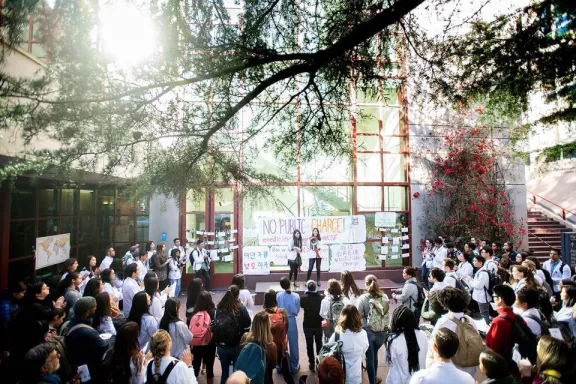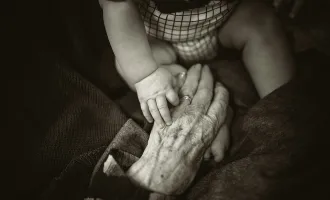
Medicine For Migration: A Call for Political Advocacy in Healthcare
On December 3rd, while students and physicians struggled to find seats for a teach-in led by Dr. Tung Nguyen at the University of California-San Francisco, medical student Alec Feuerbach at Icahn School of Medicine at Mount Sinai held a teach-in for psychiatry residents, and students gathered to rally at Harvard Medical School.
At that moment, hundreds of health professionals and trainees across the United States assembled for one purpose: to oppose public charge.
On October 10, 2018, the U.S. Department of Homeland Security proposed a change to the “Inadmissibility on Public Charge Grounds” regulation by expanding the scope of programs that can trigger a “public charge” determination.
“Public charge” is pejorative in nature, used to describe individuals applying for legal residence perceived as overly dependent on government services, rendering them ineligible for their green card or visa.
The proposed change would allow green-cards, visas, and visa-extensions to be denied to immigrants who qualify for social services like Medicaid, Medicare Part D, food assistance programs like SNAP, and public housing programs.
Under this change, forty-seven percent of all green-card applicants could be defined as a public charge and be denied their green cards.
Through a coordinated effort called “Medicine for Migration,” thousands of students and physicians at 29 institutions across the country are partaking in over 50 advocacy events this week.
Our events have mobilized health professional students to submit public comments, sign letters of opposition, and participate in public demonstrations in opposition to this most recent attack on our immigrant communities.
As organizers, we were drawn to this work because of our families’ immigration stories. Both our families immigrated to the United States from Central American countries rattled by poverty, instability, and human rights violations.
Our families left everything behind in pursuit of a better life. We, along with peers across the country, are organizing to honor the sacrifices our families made to give us the opportunities we have today.
The participation of thousands of medical students and physicians in our events has both moved and surprised us. Historically, our profession is a conservative one, with a long history of exclusion based on race, gender, income, and sexuality.
For example, the major organizing body of physicians, the American Medical Association, has a self-admitted history of inactivity during the Civil Rights Movement, at times even opposing advances like the desegregation of hospitals.
These practices were founded in the same principles that fuel unjust immigration policies today: racism and xenophobia.
Only recently have medical schools begun making strides to increase diversity among our student bodies and faculty, and there is much more work to be done. In light of this, widespread participation from healthcare professionals and trainees in Medicine for Migration signifies a shifting tide in medicine: an increasing presence of physicians in political spaces, fighting for equity and justice.
We organized around public charge determinations in reaction to an unjust immigration policy. But beyond that, we are engaging in a movement to reimagine physicianship.
This new physician does more than order labs and prescribe medications. She speaks out when she sees injustice. He writes letters to his legislators on behalf of his patients. They ask their colleagues to take action. And when necessary, we organize national movements.
As future physicians, we have a responsibility to help our patients navigate their health within the contexts of their unique lives and within the context of our society.
Thus, in this current climate, it is impossible for physicians to be apolitical if we are to serve our patients’ needs. It is our duty as physicians to advocate and organize with them and for them.
As the stewards of our evolving profession — one in which advocacy is a growing and crucial component — we are honored to do everything we can for the populations we serve.


